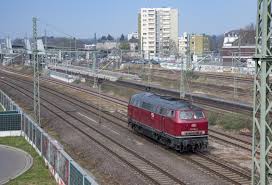Exploring the City of Leverkusen: History and Culture

Introduction to Leverkusen
Leverkusen, a vibrant city in North Rhine-Westphalia, Germany, has recently gained attention not only for its rich history but also for its significant role in the modern economy. As a major hub for science and industry, it is home to numerous global corporations, including the well-known pharmaceutical giant Bayer AG. Understanding Leverkusen’s cultural significance and economic contributions is crucial, especially as it positions itself as a center for innovation and growth.
A Brief History
Founded in the 19th century, Leverkusen was initially a site for industrial development, primarily revolving around the Bayer chemical company, which was established in 1863. Over the years, the city underwent substantial growth, culminating in its official designation as a city in 1930. Today, Leverkusen boasts a population of approximately 163,000 residents and maintains a unique identity shaped by its industrial past and contemporary influences.
Economic Landscape
Leverkusen’s economy is heavily reliant on pharmaceuticals and chemicals, thanks in large part to Bayer’s presence. The company employs thousands and is a significant contributor to local and national economies. Furthermore, the city has diversified its economic base over the years to include sectors like biotechnology, logistics, and information technology. Recent investments in infrastructure and technology parks indicate a move toward sustainable economic growth, positioning Leverkusen as a key player in the digital age.
Cultural Significance
Culturally, Leverkusen is home to several attractions, including the Bayer Cross, a major landmark that symbolizes the city’s industrial heritage. The city’s commitment to arts and music is evident through institutions like the Leverkusen Art Museum and the annual Leverkusener Jazztage, which draws visitors from around the region. In terms of sports, the prominent football club, Bayer 04 Leverkusen, showcases the city’s passion for athletics, exemplifying community spirit and pride.
Conclusion
As Leverkusen continues to grow and evolve, its combination of historical significance and modern-day innovation makes it a noteworthy city within Germany. The emphasis on sustainable development and cultural enrichment sets a positive outlook for future generations. For residents and visitors alike, Leverkusen represents a dynamic blend of tradition and advancement, making it a city worth exploring.









